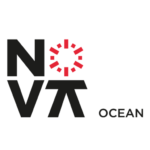2023-2025
The Women in the Blue Economy: an Empirical Analysis project is a pioneering research initiative led by NOVA School of Law and the Leading Women for the Ocean (LWO) network in collaboration with the University of Cape Verde, and the Ocean Policy Research Institute of the Sasakawa Peace Foundation. Funded by Oceans5, the project aimed to investigate the roles, challenges, and contributions of women in two traditionally male-dominated sectors of the ocean economy: small-scale fisheries and shipping.
Focusing on Portugal, Cape Verde, and with additional insights from Japan, the study adopted a qualitative, comparative approach grounded in empirical fieldwork. Through interviews, observations, and documentary analysis, the research team explored how gender operates within both formal institutions and informal practices, identifying patterns of inequality as well as strategies of resilience and empowerment.
The report highlights how women—often underrecognized in statistics and policy—play crucial roles in sustaining maritime economies, particularly through informal economic systems, collective organization, and community-based innovation. It also addresses systemic issues such as sexual harassment in the shipping industry, barriers to professional advancement, and lack of institutional support for work-life balance.
Beyond analysis, the project offers evidence-based policy recommendations, a responsive monitoring framework, and practical tools to help institutions design more inclusive and effective interventions. Its findings are relevant to policymakers, civil society actors, academic researchers, and all stakeholders committed to building a more equitable and sustainable blue economy.
TEAM
General Project Coordination
Assunção Cristas
Maria Damanaki
Gender Issues Coordination
Margarida Lima Rego
Nausica Palazzo
Cape Verde Coordination
Clementina Furtado
Sónia Silva Victória
Japanese Coordination
Masanori Kobayashi
General Project Manager
Manuela Bocayuva
Portuguese Research Unit
Patrícia André
Sara Apresentação
Tatiana Morais
Cape Verdean Research Unit
Adilson Semedo
João Carvalho
FINAL REPORT


